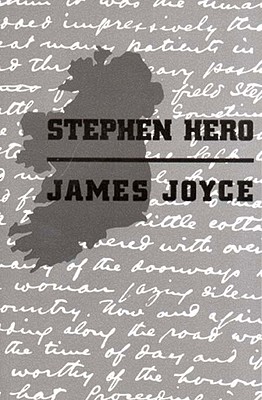APS TOGETHER
Day 12
Stephen Hero by James JoyceXXVI, pp. 219-234
January 23, 2022 by Belinda McKeon
And so we come to the final chapter of the manuscript as Joyce left it in 1905, though additional pages which precede this manuscript numerically were acquired separately in 1950 (by John J. Slocum) and will be discussed tomorrow. The history of the manuscript of Stephen Hero is somewhat chaotic, as perhaps befits its central character, or rather the effects he is content to leave in his wake. Because Stephen himself is not chaotic; Stephen, as we see again in this chapter, is focused, determined and “untroubled” by the things that preoccupy others, from his father’s drunkenness to the expectations the Jesuits have of their students to the project of nationalism with which so many of his peers are obsessed. Joyce seems to have abandoned the novel at this point, having perhaps grown tired of working on it, and there is also a theory that, because he has Stephen drop out of university in this chapter, refusing the offer extended by the Jesuits to help him stay on, Joyce ran into a plotting complication which confounded him, or perhaps simply didn’t seem worth the effort; Stephen drops out, but Joyce himself stayed on at UCD and graduated with a degree in modern languages in 1902. Also, Joyce and Nora had a newborn (Giorgio) in the house at this time, though the extent to which that would realistically have interfered with Joyce’s creative practice is debatable. Whatever the reason, this was the end of his work on Stephen Hero, and in 1908, when he returned to the material, it was very much changed as he turned it into Portrait.
It’s a pity to have lost the remainder of the novel in this way—for it not to have been continued—because this last chapter is another illustration of the rich dialogue and the compelling autobiographical scenes that make Stephen Hero such a fascinating manuscript, and which are thinner on the ground in Portrait. The chapter opens with Stephen and Cranly in conversation, Cranly once more preparing to go back to his home in Wicklow, this time with no reason to return to Dublin given that he has flunked out of college; an interesting tension exists between the two friends, with Cranly reluctant to give Stephen his address. “What mysterious purpose is concealed under your impossible prosiness?” an exasperated Stephen asks him, in a very Stephen-Daedalusian take on the question what’s eating you? “Have you anything in your mind’s eye?” It’s hard to tell, but something is bothering Cranly here; I think there’s an argument to be made for his discomfort at the intensity of his own attachment to Stephen, and a bothersome sadness at the prospect of being separated from him for the summer. The two men go to a pub off Grafton Street, where they see an acquaintance, Temple, getting a bunch of medical students drunk; they’re all in the mood to head to “the kips”, the city’s red light district, but Temple doesn’t have the money. Another of the students, though, offers to “stand” (pay) for all of them, as long as Cranly “has” a woman too. He makes this suggestion, we’re told, because he has a grudge against Cranly, and because Cranly’s chastity is “famous.” Cranly does follow the group at the end of the scene, so perhaps he assents; we’re not told.
Stephen spends his summer mostly in the company of his brother Maurice. Maurice suggests that Stephen send his poems to a publisher, but Stephen says he has burned them because “they were romantic.” Joyce’s own early poems do not survive either, and may well have met the flames. Stephen’s grades are not good enough for him to receive an “exhibition”—that is, a scholarship—for the coming year, and the money to pay for his tuition is not to be found, so his mother intervenes, asking the Jesuits for their help, and an arrangement is proposed; that Stephen take an “appointment,” perhaps a teaching post or some other work-study arrangement, to tide him over. But Stephen refuses (as Joyce refused a similar post), not wanting to be bought. His summer now is spent down by the sea at Howth Head, watching the swimmers and thinking of “Lucy” (the “bird girl” watched by Stephen in Portrait, but who does not appear in an earlier scene in Stephen Hero). He also has keeps a Danish grammar in his pocket, because he has a purpose in mind for studying that language now (likely reading Ibsen in the original). He sees Emma, and comments to an acquaintance that she will probably be married soon. “She is nothing to me now, you know,” he tells the acquaintance. “I don’t believe that, let me tell you,” the acquaintance responds, and here Stephen Hero was abandoned.
